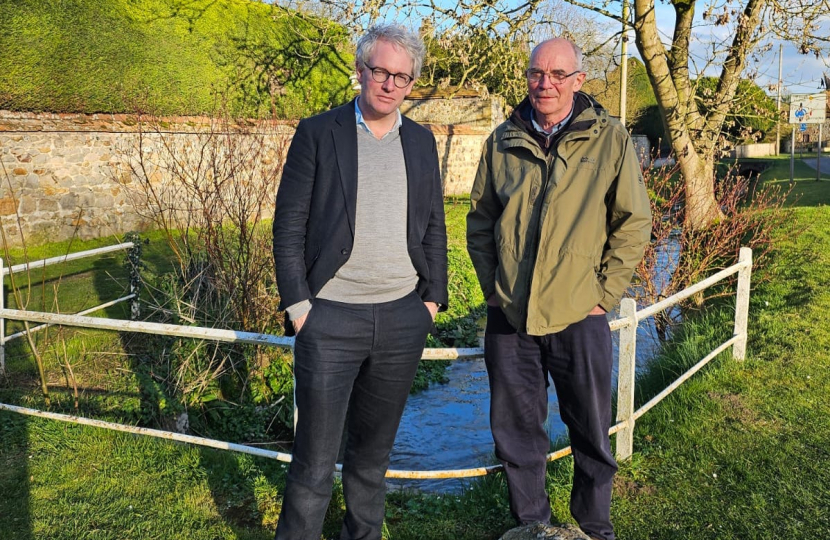
As I write Spring is springing exuberantly over a sun-drenched Pewsey Vale. But it is still very, very wet. Across the constituency, fields are sodden and village roads are awash with the overflow from drains and ditches. Particularly hard hit this year have been the Ogbournes, Aldbourne and Chilton Foliat, between Marlborough and the M4.
There is only so much the water companies can do about a lot of rain. It’s been the wettest winter on record, and the water table is exceptionally high. This accounted for the flood that hit Marlborough at new year. But there is obviously something awry when the overflow gushing from the drains includes human waste and toilet paper - as happens regularly in these villages.
The water company serving the Kennet catchment is Thames Water. And at the heart of the problem is Thames’ underinvestment in its pipes and sewage treatments works since the company was bought by the Australian bank Macquarie in 2006. As Nick Timothy explained in the Telegraph this week, ‘Under Macquarie control, which lasted until 2017, Thames paid dividends to its investors worth £2.7 billion and tripled its debt to £11 billion.’ The new owners - a Canadian pension fund - have taken no dividends since acquisition, and provided some new money to invest in infrastructure. But not enough - and they have now refused more.
As Nick argues, the answer is not full scale renationalisation. The reason water was privatised in 1989 was because the rivers and beaches were full of sewage and the taxpayer could not afford the necessary investment. One alternative is to let the company go bankrupt, with creditors and shareholders taking the hit on an investment that went wrong. But as John Redwood argues here, there may be a middle path to be negotiated by the Government to keep the company going, with very strict conditions on the infrastructure spending that need to be made.
Going forward, we need a system that gives water companies access to the capital markets, but doesn’t allow owners and executives to cream off the profit at the expense of bill payers and the environment. This can’t be beyond the wit of policy makers.
The Government is heading in the right direction. They recently lifted the cap on fines for water companies which discharge sewage into the rivers and sea, so they now face unlimited penalties. Ministers have also announced the intention to block the bonuses of water company executives responsible for criminal breaches of the rules on discharges.
We need to go further. We need a major programme of privately-funded investment in infrastructure, with the cost mostly borne by water company shareholders and creditors - though we can’t rule out increases in water bills too. But this investment should include a strong prejudice for nature-based solutions that reduce flooding and also clean dirty water without the need for huge concrete installations.
We need to reduce the volume of water going into the drains by more intelligent planning, stricter rules on the design of new housing, and a reduction of the need for new households - driven by family breakdown and unsustainable immigration.
And locally, we need direct support for the Ogbournes, Aldbourne and Chilton Foliat. I recognise how stretched Thames Water are with all the pressures on their creaky systems - but it’s utterly unacceptable to have human excrement in the streets and streams, and for the roads to be flooded for weeks on end. I am engaging directly with the company on behalf of constituents who have written to me from these villages and I hope to have good news soon about permanent solutions to their perennial problems.





